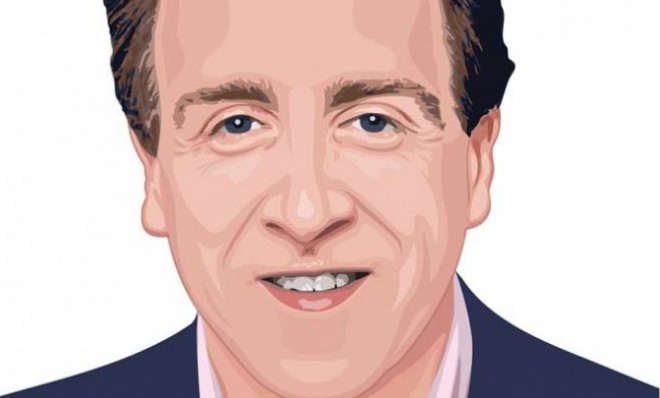Is 'entitlement' a dirty word?
Republicans are successfully framing the debate over social programs


A free daily email with the biggest news stories of the day – and the best features from TheWeek.com
You are now subscribed
Your newsletter sign-up was successful
Republicans have been working to convert the once-neutral "entitlement" label into a negative to make it easier for Congress to cut social programs.
While an entitlement used to be a positive — indicating a citizen's right to the benefits of a program they paid into — the term is now used to portray social spending that's out of control.
The shift was underscored during last year's presidential election, when Mitt Romney castigated the 47 percent of Americans who "believe that they are entitled to health care, to food, to housing, to you name it."
The Week
Escape your echo chamber. Get the facts behind the news, plus analysis from multiple perspectives.

Sign up for The Week's Free Newsletters
From our morning news briefing to a weekly Good News Newsletter, get the best of The Week delivered directly to your inbox.
From our morning news briefing to a weekly Good News Newsletter, get the best of The Week delivered directly to your inbox.
Now Republicans in Congress are working overtime to attach a similar negative feeling to Social Security and Medicare.
As Bloomberg notes, Americans were once conditioned to regard both programs as special. "The checks will come to you as a right," explained a 1936 government pamphlet that introduced Social Security.
President Lyndon Johnson had similar sentiments when he signed the legislation to establish Medicare, noting that the elderly "are entitled" to medical care.
As a result, the word "entitlement" remained non-controversial for decades, simply reflecting a person's eligibility for the popular government programs.
A free daily email with the biggest news stories of the day – and the best features from TheWeek.com
But that's changing, and Republicans now hope they can attach a negative feeling to these programs to build support for ultimately cutting them.
Of course, both parties seek to use language to push their agendas.
GOP strategist Frank Luntz wrote a must-read book called Words That Work: It's Not What You Say, It's What People Hear, which outlines his strategy for using words to change what people believe.
On the Democratic side, George Lakoff wrote The Little Blue Book: The Essential Guide to Thinking and Talking Democratic to show his party how words make a difference.
Some Democrats have argued they should call Social Security and Medicare "earned benefits" programs instead of "entitlements." But it never caught on. And now Republicans have framed the debate.
Taegan D. Goddard is the founder of Political Wire, one of the earliest and most influential political websites. He also runs Wonk Wire and the Political Dictionary. Goddard spent more than a decade as managing director and COO of a prominent investment firm in New York City. Previously, he was a policy adviser to a U.S. senator and governor. Goddard is also co-author of You Won — Now What? (Scribner, 1998), a political management book hailed by prominent journalists and politicians from both parties. Goddard's essays on politics and public policy have appeared in dozens of newspapers across the country, including The Washington Post, USA Today, Boston Globe, San Francisco Chronicle, Chicago Tribune, Philadelphia Inquirer, and Christian Science Monitor. Goddard earned degrees from Vassar College and Harvard University. He lives in New York with his wife and three sons.
-
 The environmental cost of GLP-1s
The environmental cost of GLP-1sThe explainer Producing the drugs is a dirty process
-
 Greenland’s capital becomes ground zero for the country’s diplomatic straits
Greenland’s capital becomes ground zero for the country’s diplomatic straitsIN THE SPOTLIGHT A flurry of new consular activity in Nuuk shows how important Greenland has become to Europeans’ anxiety about American imperialism
-
 ‘This is something that happens all too often’
‘This is something that happens all too often’Instant Opinion Opinion, comment and editorials of the day
-
 The billionaires’ wealth tax: a catastrophe for California?
The billionaires’ wealth tax: a catastrophe for California?Talking Point Peter Thiel and Larry Page preparing to change state residency
-
 Bari Weiss’ ‘60 Minutes’ scandal is about more than one report
Bari Weiss’ ‘60 Minutes’ scandal is about more than one reportIN THE SPOTLIGHT By blocking an approved segment on a controversial prison holding US deportees in El Salvador, the editor-in-chief of CBS News has become the main story
-
 Has Zohran Mamdani shown the Democrats how to win again?
Has Zohran Mamdani shown the Democrats how to win again?Today’s Big Question New York City mayoral election touted as victory for left-wing populists but moderate centrist wins elsewhere present more complex path for Democratic Party
-
 Millions turn out for anti-Trump ‘No Kings’ rallies
Millions turn out for anti-Trump ‘No Kings’ ralliesSpeed Read An estimated 7 million people participated, 2 million more than at the first ‘No Kings’ protest in June
-
 Ghislaine Maxwell: angling for a Trump pardon
Ghislaine Maxwell: angling for a Trump pardonTalking Point Convicted sex trafficker's testimony could shed new light on president's links to Jeffrey Epstein
-
 The last words and final moments of 40 presidents
The last words and final moments of 40 presidentsThe Explainer Some are eloquent quotes worthy of the holders of the highest office in the nation, and others... aren't
-
 The JFK files: the truth at last?
The JFK files: the truth at last?In The Spotlight More than 64,000 previously classified documents relating the 1963 assassination of John F. Kennedy have been released by the Trump administration
-
 'Seriously, not literally': how should the world take Donald Trump?
'Seriously, not literally': how should the world take Donald Trump?Today's big question White House rhetoric and reality look likely to become increasingly blurred
